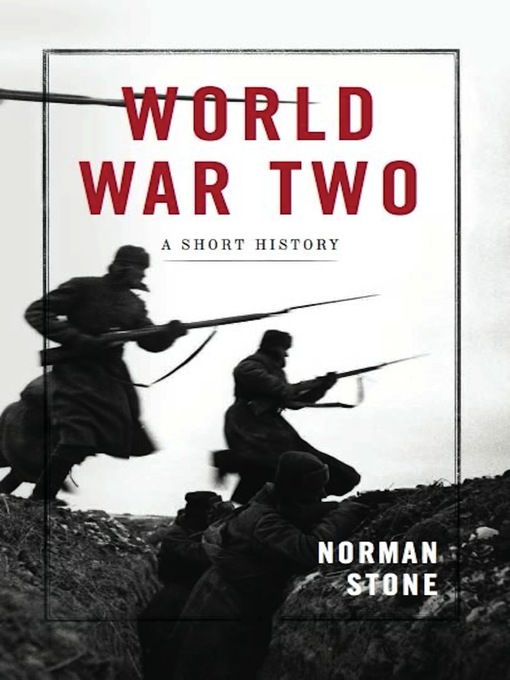
World War Two
A Short History
کتاب های مرتبط
- اطلاعات
- نقد و بررسی
- دیدگاه کاربران
نقد و بررسی

November 5, 2012
In this slim volume, British historian and former Cambridge lecturer Stone (World War One) attempts to deliver an overview of WWII, beginning with its postâGreat War origins, working through the conflict on multiple fronts, and skipping to its final, formal end with the 1991 German peace treaty. Operating under the theory that overly harsh sanctions on Germany following the previous war sparked the start of the next, Stone spends little time on the subject before moving on; though he does examine the volatile political landscape between wars, it's mostly in passing. With chapters devoted to the rise of Germany, the struggle between Germany and Russia, the North African campaign, and various aspects of Allied efforts, this work hits the highlights of the war, but fails to provide in-depth analysis. The author moves from one topic to the next at breakneck speed, relentlessly throwing out names and facts along the way. Additionally, Stone's presentation is wordy and convolutedâit might work at a lectern, but here it's awkward and often confusing. Too short to be comprehensive, and too dense to be an easy read, Stone's book might serve, at best, as a springboard for further exploration of other sources. 10 b&w photos, 3 maps. Agent: Caroline Michel, Peters Fraser & Dunlop.

November 1, 2012
Having written a long, quirky, often astute history of the post-World War era in The Atlantic and Its Enemies (2010), British historian Stone moves back in time to deliver a much shorter, entertaining history of the war itself. The Allies may have won World War I, but they made a mess of the peace, humiliating Germany and, almost without thinking, Japan, a former ally. The Depression unsettled everyone, and while the democracies turned inward, belligerent militarists took power in Germany and Japan, prepared for war and then attacked. Both won dazzling victories at first, behaved barbarically throughout, foolishly overextended themselves and lost. Stone does not quarrel with the traditional allotment of credit for Allied victory (British stubbornness, American production, Russian blood), and he makes the usual point that Germany and Japan possessed superior soldiers but incompetent governments. Their industries were poorly organized compared to America's and Britain's, and neither understood modern, technological war. Allied navies and air forces had demolished their counterparts years before the 1945 surrender. First-rate writers (Keegan, Hastings and Beevor, among others) have covered World War II at length, so there seems little need for a book that describes a complex series of worldwide campaigns in 160 pages, but Stone does a fine job. Novices will receive a painless introduction, but educated readers should not pass up the highly opinionated prologue and epilogue and the author's trademark acerbic commentary throughout. Stone's well-known conservatism is on display mostly in his greater praise of America and contempt for the Soviet Union, so readers of all stripes may roll their eyes, but they will find plenty to ponder.
COPYRIGHT(2012) Kirkus Reviews, ALL RIGHTS RESERVED.

December 15, 2012
This is a compact book that manages to cover most of the major aspects of the titular conflict. Stone, who has taught history at Cambridge, Oxford, and in Turkey, writes in a rapid-fire but clear style; while his narrative necessarily moves quickly, he manages to insert some useful and sometimes provocative analyses. His work is often written from a European perspective, and Stone doesn't hesitate to ravage European, especially British, leaders for their miscalculations that allowed Hitler to gain and then maintain power. On strictly military matters, Stone sometimes disputes conventional wisdom. For example, he asserts that Hitler's Norwegian victory was actually a long-term defeat. Stone's concluding chapter on the aftermath of the war is particularly well done, as he asserts that many of the unresolved issues in 1945 would not be settled until the collapse of Communism in Eastern Europe and the demise of the Soviet Union. This is an ideal work for general readers who require an introduction to the causes, course, and results of the war.(Reprinted with permission of Booklist, copyright 2012, American Library Association.)

























دیدگاه کاربران